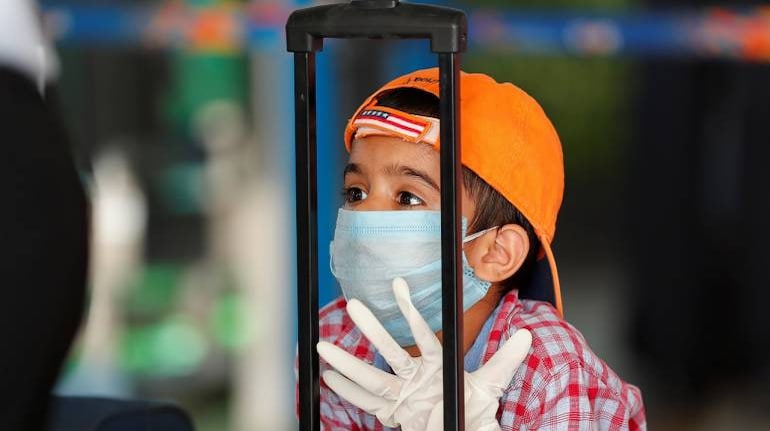



Dr J P Muliyil, who is chairman of scientific advisory committee at ICMR National Institute of Epidemiology and a member of the COVID working group of the National Technical Advisory Group of Immunisation, suggests that the Omicron may be ending and that it may be prudent for India to do away with COVID restrictions once Delta variant’s share in tested samples is less than 1 per cent.
Edited excerpts:
With the third COVID-19 wave looking to stabilise in India, what can we expect in the days ahead? Can there be any more variants which may cause a fresh trigger?All possibilities are there. There are already two Omicron lineages, BA 1 and BA2, sweeping through populations in most countries. But this third wave in India has, in a way, assured that, with a very high degree of previous infection and good COVID vaccination coverage, the infection caused by new variants - if any - may stay mild. All the existing COVID vaccines have largely been able to prevent severe disease and deaths even though fresh variants like Omicron have kept infecting people who may have received even four doses of the vaccines. But you have to understand that infection, in itself, means nothing if there is near zero risk of hospitalisation and death.
The issue of booster vaccine in India has been quite controversial with two contrasting sets of opinions around it. What are your views on it?One has to understand the concept of booster doses first and why they are given. Tetanus is one disease against which booster dose, for example, is required every few years because the body does not have immunity memory required to protect against it. That, however, may not be the case against SARS CoV 2. The COVID vaccines countries are using now were originally designed against the virus that first originated in Wuhan, China. But it has been established that these vaccines have protected people from serious disease and hospitalisation even after being infected with the Omicron variant, two years later. So, people need to realise that vaccines can’t be given for protection against the same or similar virus every few months. There is an immunity memory in the body that will tackle the virus even if there is an infection. As opposed to the concept of vaccine hesitancy, some people seem to be on the other side of the spectrum which is vaccine-urgency but neither is good nor scientific.
COVID vaccination was started for 15–17-year-olds in India last month and there have been demands to further lower this age limit so that younger kids and teenagers, too, can get the vaccine. What do you think about it?Those batting for COVID vaccination in kids should be asked this question—why should kids need the vaccine? Not one or two but several studies have proved that COVID deaths in kids under 12 years of age has been almost zero. The vaccines being administered to adults are towards a specific purpose but if the infection does not lead to severe disease or risk of death in kids—why do we need to inoculate them?
Some European countries like Sweden and Denmark have announced removal of COVID restrictions completely—citing mild nature of the infections caused by the Omicron. When do you think there will be time for India to follow that path?I think we will also be in that comfortable situation soon when the COVID restrictions, including mandatory masking in public, can be relaxed. However, we have to keep a close eye on the results of whole genome sequencing of COVID samples from across India. In my understanding, Omicron has largely replaced Delta in most parts already and once the share of Delta is less than one percent of the samples tested which may happen in two weeks or so—we can remove the restrictions and may consider going back to a normal life. Coronavirus infections may keep causing flu-like symptoms but that should not be too much of a worry given our history of high degree of natural infection and vaccination.
Discover the latest Business News, Sensex, and Nifty updates. Obtain Personal Finance insights, tax queries, and expert opinions on Moneycontrol or download the Moneycontrol App to stay updated!
Find the best of Al News in one place, specially curated for you every weekend.
Stay on top of the latest tech trends and biggest startup news.